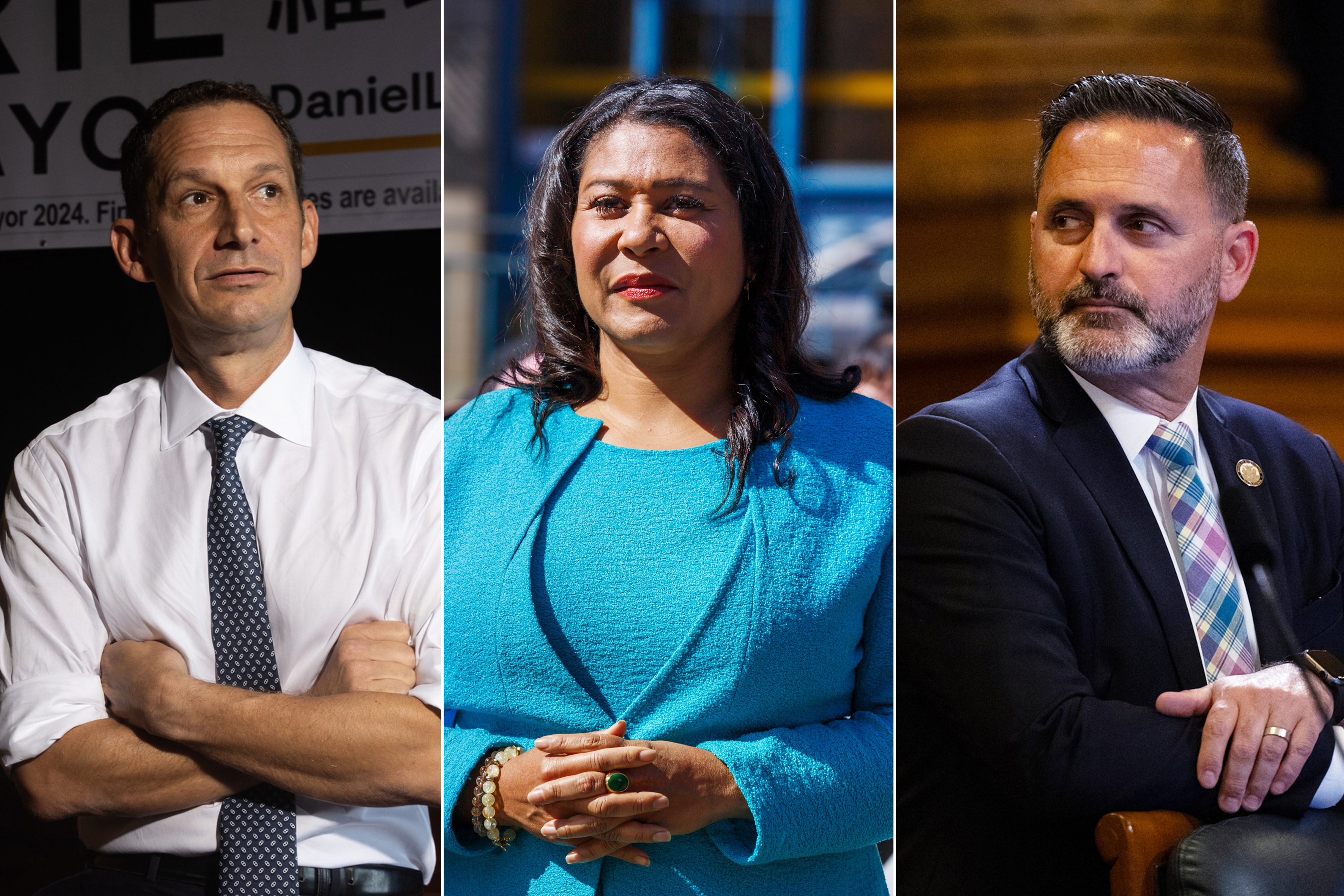The race to become San Francisco’s next mayor is still in its early stages, but that hasn’t stopped candidates from trading barbs over their plans to solve the city’s most pressing issues.
On the same day last week, Levi Strauss heir and nonprofit founder Daniel Lurie announced his run for mayor as Mayor London Breed publicly proposed a controversial policy that would force people on welfare to undergo drug screenings.
The dueling conferences marked the beginning of a 2024 race that’s likely to be hyper-focused on the city’s drug and homelessness crises. And in a subsequent press release, Lurie accused Breed’s office of “headline chasing”; Breed’s office hit back in a statement to The Standard saying, “Let’s hear the ideas.”
Each candidate has their own history of trying to tackle the issues. Breed ran her 2018 mayoral campaign on ending long-term street encampments and providing safe spaces to inject drugs. Lurie founded a nonprofit with a focus on addressing homelessness. Supervisor Ahsha Safaí, another mayoral challenger, drafted legislation last year that led to the creation of the city’s Homelessness Oversight Commission.
But where do the city’s most prominent mayoral candidates—Lurie, Breed and Safaí—stand on drug and homelessness policies?
Safe-Consumption Sites
San Francisco has long toyed with the idea of creating facilities that would allow people to use drugs under the supervision of people trained to reverse overdoses. Many drug policy experts have touted the benefits of such sites, asserting they reduce public drug use and overdoses. It’s unclear whether the general public is convinced, however.
Breed advocated for safe-consumption sites during her 2018 mayoral campaign, but amid legal uncertainty, she has shied away from allowing the city to fund the facilities. In a statement, Breed’s campaign said she would allow a nonprofit to fund and open a safe-consumption site independently, but she is awaiting guidance from the federal government before allowing the city to finance such a facility.
Safaí told The Standard he supports opening safe-consumption sites, but he envisions them working in coordination with sober living facilities and other treatment options. He pointed to his work with the Adult Probation Department to create sober living programs for people leaving jail.
Lurie differed from the other candidates on the issue, telling The Standard that he wouldn’t support opening such sites. In a statement, Lurie suggested they would lure “drug tourism” to the city and said he would instead focus on “shutting down open air drug markets and getting everyone sheltered.”
Encampment Clearings
In December, a local advocacy nonprofit called the Coalition on Homelessness brought a lawsuit accusing San Francisco of violating the constitutional rights of homeless people by destroying their property without offering shelter. U.S. Magistrate Judge Donna Ryu, the judge in the case, sided with the coalition and issued a preliminary injunction restricting the city from enforcing laws prohibiting people from sitting, lying or camping in public spaces.
The issue of whether or not the city should clear encampments has since taken center stage. Advocates decry the adverse impact encampment sweeps have on homeless people, and the city has argued it must use enforcement to compel some people into shelter.
Breed has taken a hard stance against the injunction, calling it ridiculous and saying it has hampered the city’s ability to improve street conditions. In a statement to The Standard, Breed’s campaign said she supports enforcing anti-camping laws when people have access to shelter and is looking to broaden the city’s ability to enforce such laws. She proposed funding for 600 new shelter beds during this year’s budget deliberations.
Safaí told The Standard he thinks the mayor has used the injunction as an excuse for the city’s street conditions. Safaí said he would focus on building up the city’s supply of shelters with private living quarters, but he maintained that the city should enforce anti-camping laws against people who decline shelter.
Lurie also said the injunction is being used as an excuse for the city’s failure to set up sufficient shelter beds. He vowed to create the beds necessary to “empathetically” clear encampments and even suggested using opioid settlement funds to do so.
Public Drug Use
As the city grapples with a deadly overdose crisis, public drug use has also placed an enormous burden on residents and business owners in parts of the city’s Downtown core. However, some experts believe that criminalizing drug use can lead to more fatal overdoses because people with addiction will be forced into hiding.
In recent months, Breed has taken a hard stance on the issue, saying during a public hearing in May that “compassion is killing people” and thereafter announcing a law enforcement initiative intended to compel people into treatment and deter them from using drugs.
Safaí said he would prioritize arresting drug dealers, but he supports citing people if they are caught persistently using drugs in public. “They should be encouraged, compelled and directed toward treatment,” he said. “And if they continue to break the law, they are going to get citations for sure.”
Lurie said he supports enforcing public drug use laws, but if elected, he would seek to reinstate the Law Enforcement Assisted Diversion program, which allowed police to refer drug users directly into treatment as an alternative to punitive measures.
All three candidates agreed the city needs to expand access to drug treatment.
